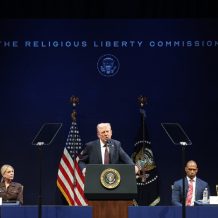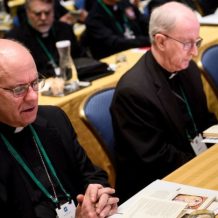The election of Pope Leo XIV has refocused attention once again on the mega-ethical issue of our time — “Who and what is a human being?” Virtually every important moral and ethical issue confronting human society in the 21st century is impacted profoundly by the answers offered to that question.
In many ways, the question of who and what is a human being has been a critical moral question in every culture or civilization in which humanity has found itself, however ancient or modern. As humanity has “progressed” through the 21st century, however, revolutionary technical breakthroughs typified by Artificial Intelligence (AI) have added complications and urgency to the frequency and fervor with which the question is being asked.
The former Catholic Cardinal, now known as Pope Leo XIV, chose that particular predecessor’s name because of Pope Leo XIII’s (1878-1903) impressive influence on these issues. Pope Leo XIV is reportedly gravely concerned by modern assaults on the dignity of human personhood (especially AI) and chose this particular name because of Pope Leo XIII’s tremendous influence in criticizing both communism and unbridled capitalism in his overwhelmingly influential and prescient encyclical Rerum Novarum (1891). Leo XIII used this encyclical to lay the foundation for Roman Catholic “social justice.”
Recently, a much less publicized, but important, theological event took place that I believe should have a healthy impact on issues surrounding the question of “Who and what is a human being?”
The faculty of Union University, a small but well-respected Southern Baptist liberal arts university in Tennessee, has issued a critically important document entitled, “A Framework for Biblical Anthropology.”
“A Framework for Biblical Anthropology”:
The “Framework” statement is unapologetically Christian, as it should be, and with remarkable succinctness states and explicates a “Biblical anthropology.”
“Framework” is a truly commendable survey of what God has revealed to us in Holy scripture about Himself and about us, individually and collectively, as created in “His image” (Gen. 1:26-27). From this point forward, I will use it in every opportunity I have to minister to students or congregations.
The document itself is such an outstanding example of theological and linguistic succinctness; it is difficult to summarize it easily. Nevertheless, I will try.
“Framework” emphasizes the critically important truths about humanity that are so important to the identity of what it means to be “human.” For example, “Framework” declares:
“Framework” is a truly remarkable, pedagogical document. It is intended to be used to teach an increased understanding of the Christian faith, especially in relation to humanity’s desired definition and destiny in Jesus Christ. “Framework’s” outline reveals its intent and purpose:
Under the final section, “Restored in Christ,” “Framework” is perhaps at its most eloquent:
I am not sure it can be articulated more accurately or succinctly. Consequently, I am not going to try.
Download “Framework.” Believe it, use it, share it with everyone you can.
 English
English Português
Português Español
Español Français
Français











